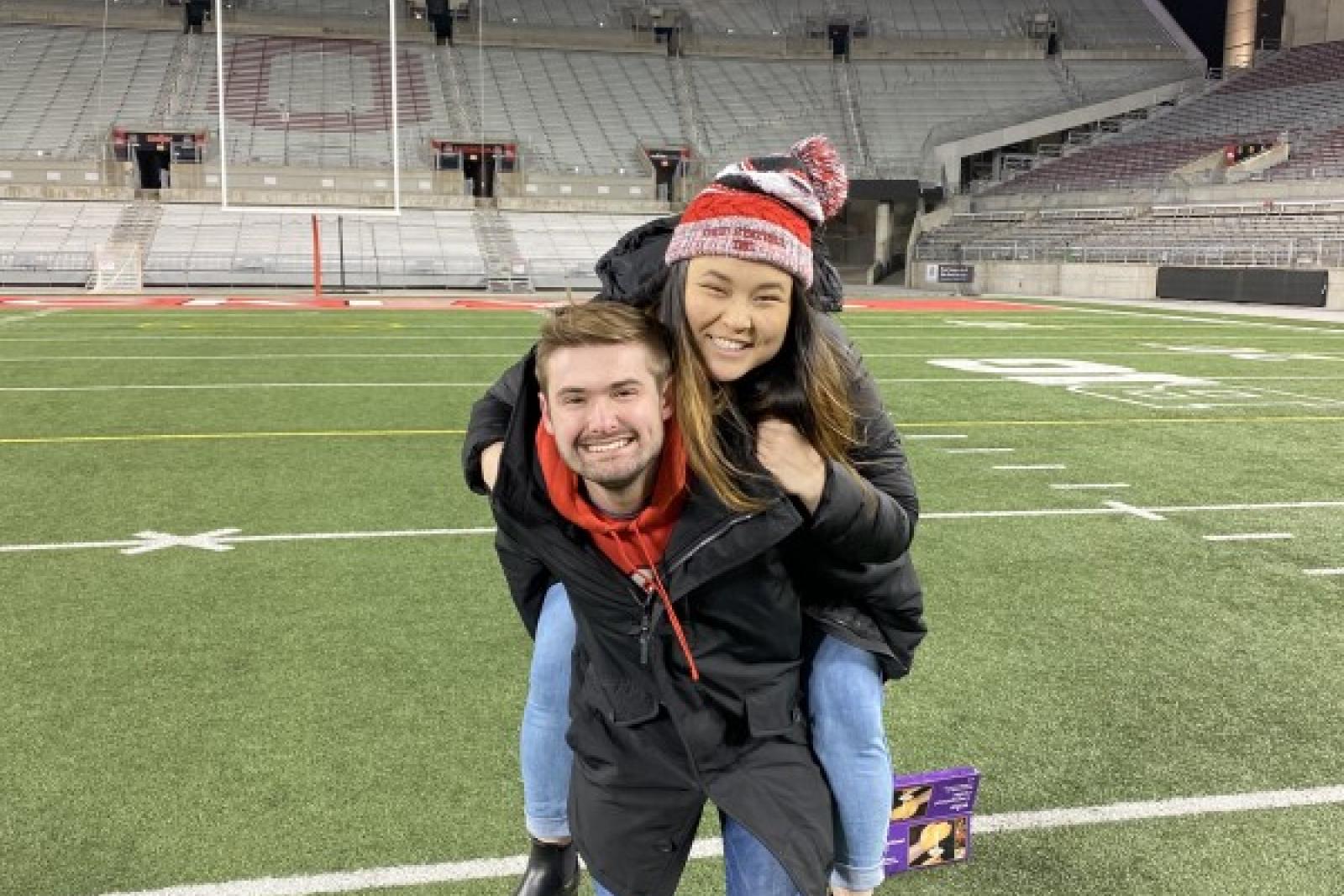PharmD students take on diabetes in health care deserts – Schweitzer Fellowship, part one

PharmD students Jadelyn Cheng and Riley Evans are friends with a passion to help their community by tackling social determinants of health. They are also one of the groups selected for this year’s Columbus-Athens Schweitzer Fellows Program.
Cheng and Evans’ friendship began as freshmen in the Bachelor of Science in Pharmaceutical Sciences program at The Ohio State University College of Pharmacy.
“Even though we come from different backgrounds, we came together with a mutual bond in our passion to help the community that raised us,” Cheng said.
Their passion led Cheng and Evans to brainstorm ways they could give back. Motivated by the impact of the COVID-19 pandemic and social justice protests of 2020, they decided to take what they learned inside the classroom and apply it to their community by fostering health care equity among African American groups within Columbus through the Schweitzer Fellowship Program.
“We saw a lot of problems highlighted this past year such as access to health care and racial inequity,” Cheng said. “This motivated us to create a project that focused on racial disparities and closing the gap on health care access because these issues are intertwined with health. It’s important someone pays attention to it.”
The pair brought their idea to Zach Woods, PharmD, assistant professor of pharmacy practice and science, who helped them brainstorm ways they could work toward building a more equitable system.
For their fellowship project, Cheng and Evans decided to focus on diabetes detection and management in historically African American neighborhoods, regarded as health care deserts – areas where citizens have inadequate access to health care.
“Diabetes is an incredibly complex disease state to manage physically, emotionally and mentally,” Evans said. “It affects a lot of people and it’s really hard to know if you have elevated blood sugar; there’s not a lot of warning signs. Being able to screen for this early on can help prevent the progression of diabetes and help patients get connected to care sooner.”
Dr. Woods helped them work out the program’s details. One area of focus was that many neighborhoods didn’t have access to reliable transportation. The team thought of ways to address this inequity, ultimately creating a mobile unit.
Cheng and Evans will partner with Physician’s Care Connection (PCC), a non-profit affiliated with the Columbus Medical Association, to refer patients that they identify could benefit from provider follow-up but may need assistance in the accessing care.
“It’s fulfilling to see that our students can identify unmet community needs and programs like the Schweitzer Fellowship to fill those gaps,” Dr. Woods said. “This translates really well to them being a successful pharmacist in the future. I am tremendously proud of the initiative that these students have taken. Jadelyn and Riley are going to take this opportunity to impact the community and it’s such a privilege to work with such motivated and clever students.”
Developing and executing the program has given Cheng and Evans hands-on learning outside the classroom and allowed them to use their new clinical skills and bedside manner.
“It is exciting to take the knowledge that we learned in class and use it in the community,” Evans said. “It’s great to go to class and learn all this information and begin to use it to make a difference now before we graduate.”
Both students feel this experience will be a great way to explore their professional interests and equip them with skills they will need in their future careers.
“I really enjoy the education and advocacy of patients in pharmacy and it’s really something that I want to pursue in the future,” Cheng said. “All health care professionals have a moral responsibility to advocate for patients. It’s pretty much a perfect opportunity for Riley and me.”
Their fellowship will end next August, but Cheng and Evans hope that their program will serve as a strong trial run so that their partnership with PCC can become a permanent offering and continue to foster health care equity.
About the Schweitzer Fellowship Program
The Schweitzer Fellowship Program aims to develop a pipeline of skilled and compassionate emerging pharmacy professionals that will engage in public service initiatives to eliminate health disparities by addressing the social determinants of health in local underserved individuals and communities.
The program grants graduate and professional students a $3,000 stipend to carry out a year-long community service project of at least 200 service hours. One-hundred hours involve direct client contact. The students develop and lead their own projects, relevant to the program’s mission, with a community-based partner and academic mentor.